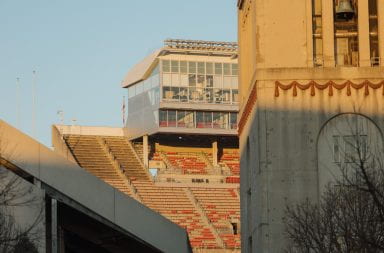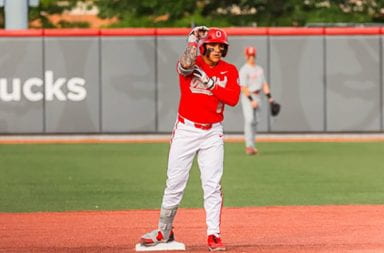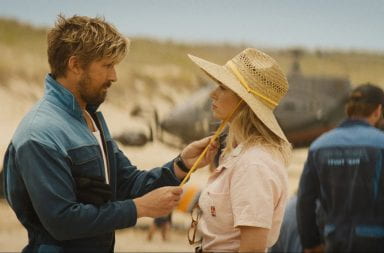
Members of the 2018 executive board of Redefining Athletic Standards pose at the end of their event, Like Black Lives, Mental Health Matters Too. Credit: Daniel McNatt | Former Lantern Reporter
In a world that is stressing physical distancing, the Ohio State student organization Redefining Athletic Standards is striving for togetherness in a time of social turbulence.
RAS, created in 2018, is a group that brings together Black male student-athletes to give members a voice and to be defined by more than an individual’s athletic ability. While COVID-19 concerns and renewed social movements have created an environment that is uncertain, RAS is looking to stay true to its founding mission, Terry Johnson, RAS president and senior track athlete, said.
“The main reason why we started is to give our athletes a voice and allow them to stand for things like this, so our goal is to support them in as many different types of ways through this process,” Johnson said.
On July 30, the NCAA approved the allowance of student-athletes to wear patches on their jerseys that don messages of social justice. While this decision provides student-athletes with an opportunity to express their beliefs, Johnson said RAS looks to educate its members on what is happening in society in order to give them the necessary knowledge to act and speak out with certainty.
In an effort to continue individual growth and education, the group held a talk July 21 on Zoom with former Ohio State football players Malcolm Jenkins and Jamie Wood.
Throughout the Q&A, the topics discussed touched on the group’s mission to focus on aspects outside of athletics.
“For you all, my charge for you is to continue to experience real life,” Wood said to RAS members. “I know at Ohio State we strive for excellence in everything that we do, especially on the field of play, but I would encourage you all just as much effort and just as much preparation you put into your athleticism, is to continue to do that in life.”
In the current climate of social unrest, Jenkins told RAS members that the pandemic eliminated distractions, such as watching sports and going to the movies, that would have prevented a focus on issues happening in society. While the increased attention and conversations are necessary, Jenkins stressed to the group that more needs to be done.
“We have to really start taking those conversations and now moving them to action,” Jenkins said. “We’ve been having the conversation for decades now.”
Jenkins also emphasized the importance in using one’s voice in the election, which he said included both national and local involvement.
In terms of making an impact in the community, Wood encouraged the members to do so by setting aside time and being intentional with what they do outside of sports in order to become the best versions of themselves.
“This sport experience is a vehicle for you,” Wood said. “Just make sure you are aware of that and maximizing your time, your journey and your ride in that vehicle.”
With COVID-19 altering the normal routine, Johnson said that members of RAS have been able to find time to come together, but interactions have moved to a virtual environment with the emphasis on social distancing.
Although the uncertain environment has made planning difficult, Johnson still has goals for the group going forward.
“In the future, I would love to see RAS support incoming students in as many ways as possible, because everyone knows how much influence athletes can have so just using that influence to try to increase graduation rates or increase the enrollment rates at Ohio State so there is more representation of Black males on our campus,” Johnson said.
Black males accounted for 1,459 students of the total 58,491 student population at Ohio State’s Columbus campus for the 2020 spring semester. Although RAS is a group that looks to support Black male student-athletes, the group has made efforts to support Black students on campus as well; this support has been displayed in the past with an event such as Kick it at the Woody, which partners students with student-athletes while all involved participate in games.
Along with increasing the amount of student events and interactions with RAS, Johnson is hoping to increase the voice of RAS members on campus while preparing student-athletes for life after college.
In terms of making an impact today, Johnson emphasized the importance of not letting the momentum die out.
“Once the ball gets rolling, let’s keep it going instead of retracing our steps,” Johnson said. “Everybody’s seen the progress, so just reminding people how far things have come and let’s keep going and now is a perfect time to keep going.”


